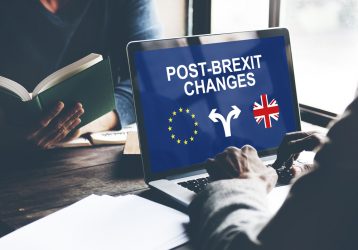
The department for Business, Energy and Industrial Strategy (BEIS) has recently released a checklist to help small and medium-sized enterprises (SMEs) prepare for the UK leaving the European Union (EU) on 31 October 2019.
Here are six things SMEs can do to prepare:
Personal qualifications
Make sure your employees’ professional qualifications are recognised in countries that your business is trading with. European Economic Area (EEA) and Swiss qualified professionals working in UK-regulated professions will need their qualifications recognised by the relevant UK regulator.
European Union (EU) Settlement Scheme
Employers can help their EU, EEA and Swiss employees retrieve the required information they need to apply for status under the EU Settlement Scheme to secure their rights in the UK. Applicants will have until at least 31 December 2020 to make an application.
Personal data
To continue to legally receive personal data from organisations in the EU or EEA after 31 October, you may need to update your contracts or take other steps.
Find out more at www.gov.uk/brexit-personal-data or visit the Information Commissioner’s Office (ICO) guidance for ‘data protection and Brexit’.
Regulations for operating in the EU
Check the regulations for EU/EEA countries to ensure you can still operate there as UK businesses, service providers, employees and self-employed individuals may face additional legal, regulatory and administrative barriers, including visas or work permits.
EU trading procedures
If you wish to continue to import and export in and out of the EU after 31 October then there are changes you need to make. Ensure you have an Economic Operators Registration and Identification (EORI) number that starts with GB. This is free to register for at https://www.gov.uk/eori.
For businesses that import there is also the option of applying to use transitional simplified procedures (TSP). This streamlines the process and is aimed at companies with less experience in customs procedures.
EU funding
The Government has guaranteed that UK organisations will continue to receive funding over their projects’ lifetimes if they have successfully bid into EU-funded programmes up to the end of 2020.
The BEIS advises companies to speak with their accountants as soon as possible to ensure that they are up to speed with the imminent impact of Brexit on businesses.

